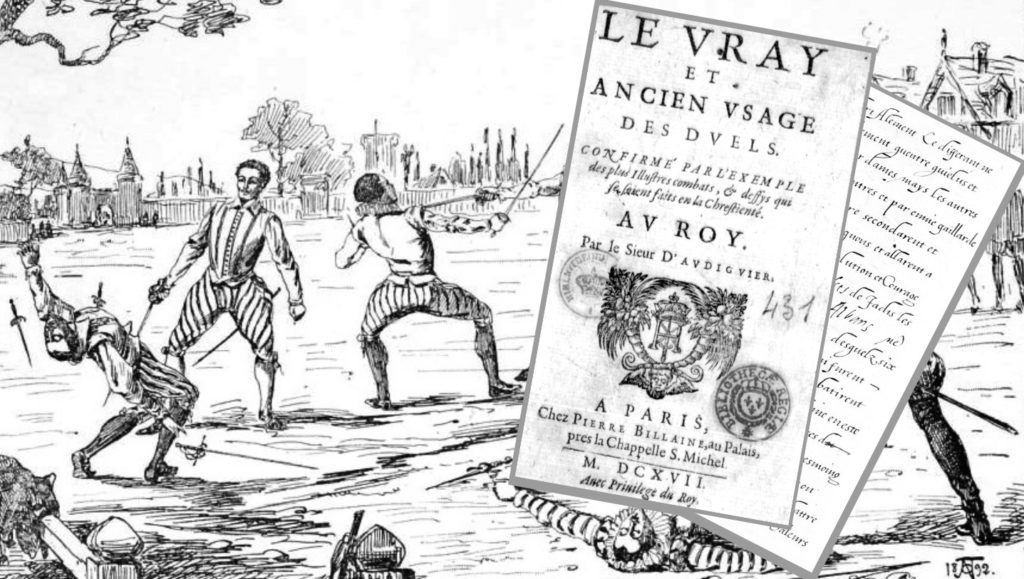The situation of 16th century France with respect to duelling is by all accounts original among the rest of Europe. The very last public judicial duel took place in 1547 (the famous Jarnac – La Châteigneraie fight, giving birth to the French expression coup de Jarnac), and the king had such sorrow of the result that he swore never to allow another to happen. From then on, duelling was therefore technically illegal. However, the inconsistent punishment of duellists, or even public honour granted to them, turned unofficial duelling into fashion. It ended up being a huge social problem in France in the late 16th century. An estimate worked out by M. de Loménie gave 4000 duellists dead between 1589 and 1607, and this was at least plausible enough to be echoed in the memoirs of Sully, prime minister of king Henri IV. Another estimate by Gaspard de Saulx gives 6000 dead. Italian fencing masters were all the rage in the French court, and it is quite plausible that the developping fencing theories saw direct testing and application in this period. In this series of posts I would like to share period accounts of duels as they appear in the writings of Pierre de Bourdeille and Vital d’Audiguier.
Pierre de Bourdeille, Seigneur de Brantôme, was a French gentleman born around 1540. He travelled around Europe and beyond: Italy, Spain, Portugal, Scotland, Morroco… In permanent contact with courts, nobility and military men of the time, he gathered a huge amount of anecdotes that he eventually set out to write down after a horse accident forced him to retire in 1589, before his death in 1614. See this notice for more complete biographical information. His memoirs contain a whole section dedicated to duelling, later published in isolation under the title Discours sur les Duels.
Vital d’Audiguier was another French gentleman born in 1565 or 1569. He started out in a military carreer, but later turned himself into a poet, writer and translator. He is the author in 1617 of an interesting book Le Vray et Ancien Usage des Duels (the True and Ancient usage of duels) where he relates many old and contemporary duels in order to devise the best way to make the now unlawful and anarchic practice disappear. Duels outlived him, sadly, as he was assassinated in Paris over a gambling pretext sometimes before 1627.
Neither of these authors were historians; much of what they share is uncertain or based on hearsay, sometimes with competing versions. They are not making a mystery of it, however, and an undeniable value of their work is to provide context by showing the general court attitude towards duelling, its usage, and the associated loss of life.
Posts in the series:


